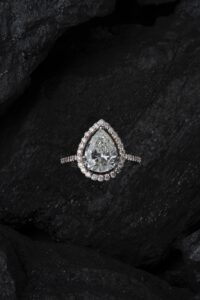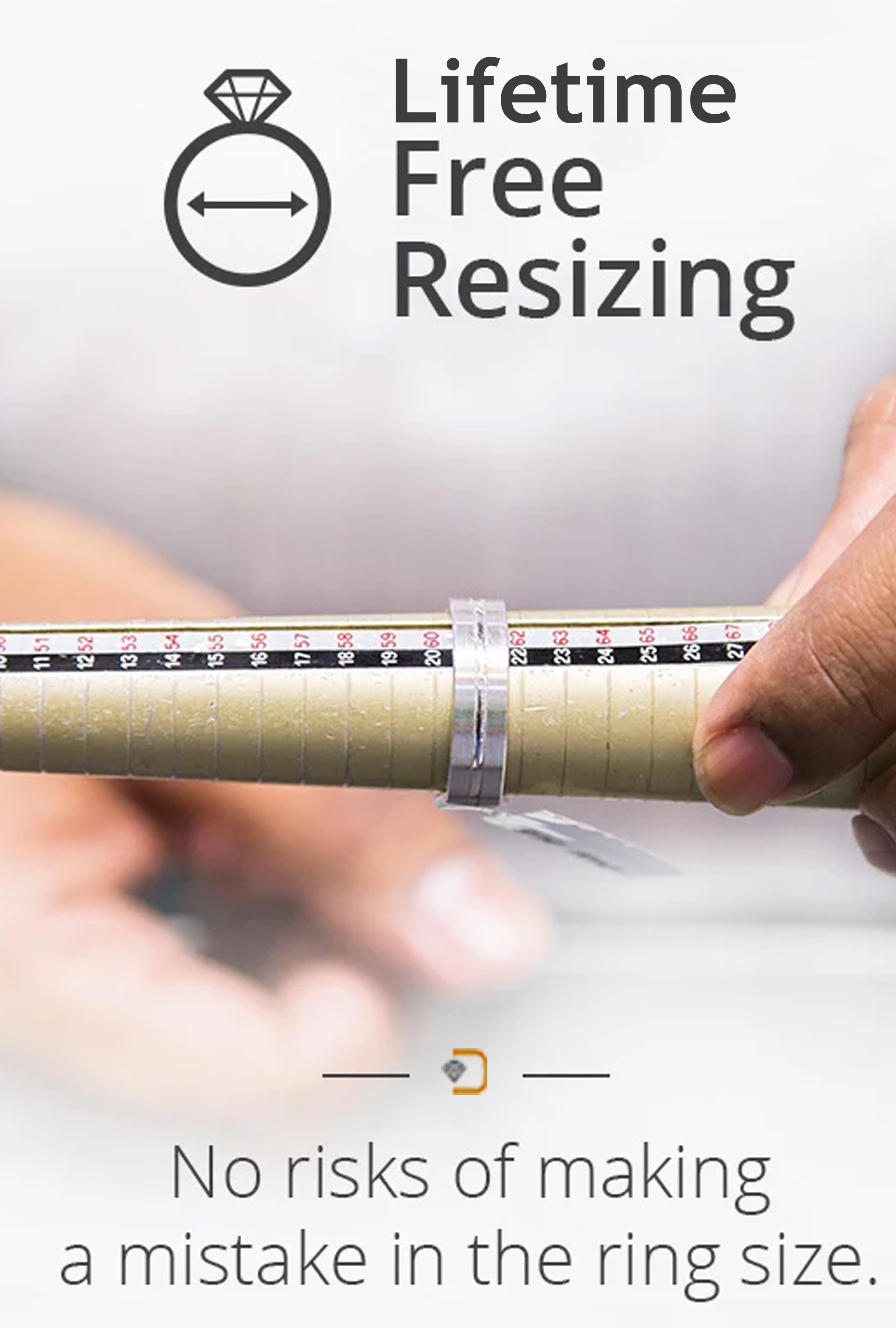In an age where conscious consumerism is on the rise, ethical considerations are becoming increasingly important, especially in the jewelry industry. Diamonds, often associated with luxury and opulence, are no exception to this trend. Ethically sourced diamonds have gained significant popularity in recent years, and for good reason. This piece will explore why ethically sourced diamonds are in high demand and how they contribute to a more environmentally friendly jewelry industry.
What Are Ethically Sourced Diamonds?
Before delving into the reasons behind their growing demand, let’s understand what ethically sourced diamonds are. Ethically sourced diamonds, sometimes referred to as conflict-free diamonds, are gems that have been mined, processed, and traded with a commitment to minimizing harm to both people and the environment. These diamonds are typically sourced from mines that adhere to strict labor, environmental, and social standards.

The Ethical Concerns of Traditional Diamond Mining
To comprehend why ethically sourced diamonds are gaining prominence, it’s essential to acknowledge the ethical concerns associated with traditional diamond mining. Traditional diamond mining has often been linked to conflict zones, where diamonds have been used to finance violence and fuel civil wars. This association has led to the term “blood diamonds,” which underscores the human suffering and conflict associated with diamonds that have not been ethically sourced.
Additionally, traditional mining practices have been known to have adverse environmental impacts, including deforestation, soil erosion, and habitat destruction. Chemicals and heavy machinery used in conventional mining can also pollute nearby water sources. These ethical and environmental concerns have prompted consumers to seek alternatives, such as ethically sourced diamonds.
Reasons for the Growing Demand
–Social Responsibility: Consumers today are increasingly socially conscious. They want to ensure that their purchases do not contribute to human rights abuses or conflict. Ethically sourced diamonds provide peace of mind, knowing that they have not been involved in funding violence or exploitation.
-Transparency: Ethically sourced diamond suppliers often provide detailed information about the diamond’s journey, from mine to market. This transparency allows consumers to make informed choices and align their values with their purchases.
-Environmental Stewardship: Ethically sourced diamonds are typically mined using more environmentally friendly practices. This includes minimizing the use of harmful chemicals, reducing carbon emissions, and rehabilitating the land post-mining. As concerns about climate change grow, consumers are seeking sustainable alternatives in all aspects of their lives, including jewelry.
-Positive Brand Image: Jewelry retailers that prioritize ethical sourcing can build a positive brand image. Consumers are more likely to support businesses that demonstrate a commitment to social and environmental responsibility. This can lead to increased customer loyalty and trust.
-Legislation and Certification: Many countries have implemented regulations and certification programs to ensure the ethical sourcing of diamonds. These initiatives, such as the Kimberley Process, help ensure that diamonds are not linked to conflict and that they meet certain ethical standards.
Environmental Benefits of Ethically Sourced Diamonds
Apart from the ethical considerations, ethically sourced diamonds also offer significant environmental benefits:
-Reduced Carbon Footprint: Ethical diamond mining operations often invest in cleaner and more energy-efficient technologies, reducing their carbon footprint compared to traditional mining practices.
-Land Rehabilitation: Many ethical diamond mines prioritize land rehabilitation after mining activities have ceased. This involves restoring the natural ecosystem and minimizing the long-term environmental impact.
-Water Conservation: Ethical mining practices focus on responsible water usage and management, reducing the risk of water pollution and ensuring the availability of clean water for local communities.
-Biodiversity Protection: Ethical diamond mining takes measures to protect local ecosystems and wildlife, reducing habitat destruction and preserving biodiversity.
How to Identify Ethically Sourced Diamonds
Identifying ethically sourced diamonds is crucial for consumers who want to make responsible choices. Here are some tips:
-Ask for Certification: Look for diamonds that come with reputable certifications, such as those from the Kimberley Process or the Responsible Jewellery Council.
-Research the Retailer: Investigate the retailer’s commitment to ethical sourcing. Reputable jewelry stores often have clear policies and practices in place.
-Transparency: A retailer that is transparent about the diamond’s origin and journey is more likely to sell ethically sourced diamonds.
-Consider Lab-Grown Diamonds: Lab-grown diamonds are another ethical option. These diamonds are created in controlled environments and do not involve mining.
On the Whole
The demand for ethically sourced diamonds is driven by a combination of ethical concerns and environmental consciousness. Consumers today want to make jewelry choices that align with their values, and they are increasingly aware of the ethical and environmental impact of their purchases. It’s a choice that not only reflects personal values but also supports positive change in an industry that is evolving towards sustainability.
If you’re looking for ethically sourced Diamonds Dubai Jewellers, we invite you to explore the stunning collection at DiamondsDubai.ae. Our commitment to ethical sourcing and transparency ensures that you can find exquisite diamonds that match your values. You can find directions to our store on Google Maps or leave a comment on one of our social media accounts to learn more about our offerings.






0 comment: